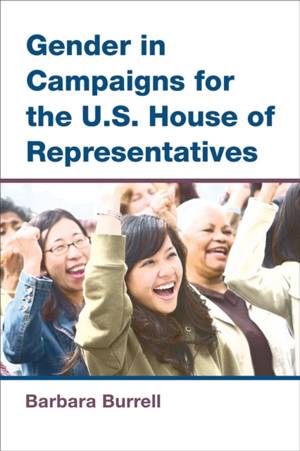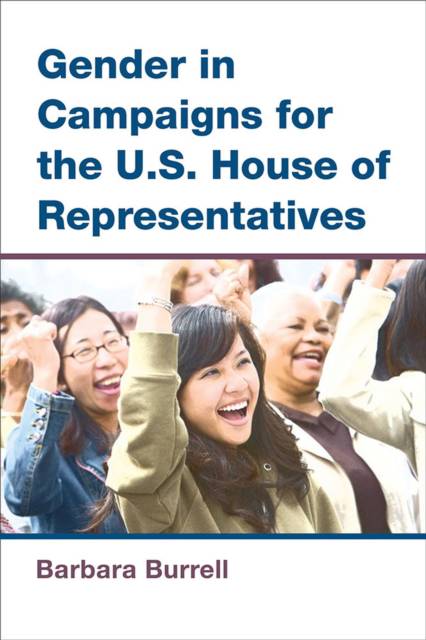
- Afhalen na 1 uur in een winkel met voorraad
- Gratis thuislevering in België vanaf € 30
- Ruim aanbod met 7 miljoen producten
- Afhalen na 1 uur in een winkel met voorraad
- Gratis thuislevering in België vanaf € 30
- Ruim aanbod met 7 miljoen producten
Zoeken
Omschrijving
Barbara Burrell presents a comprehensive comparative examination of men's and women's candidacies for the U.S. House of Representatives in elections from 1994 through 2012. Analyzing extensive data sets on all major party candidates for 10 elections-covering candidate status, party affiliation, fund-raising, candidate background variables, votes obtained, and success rates for both primary and general elections-Burrell finds little evidence of categorical discrimination against women candidates. Women compete equally with men and often outpace them in raising money, gaining interest group and political party support, and winning elections.
Yet the number of women elected to the U.S. House has expanded only incrementally. The electoral structure limits opportunities for newcomers to win congressional seats and there remains a lower presence of women in winnable contests despite growing recruitment efforts. Burrell suggests that congressional dysfunction discourages potential candidates from pursuing legislative careers and that ambitious women are finding alternative paths to influence and affect public policy.
Yet the number of women elected to the U.S. House has expanded only incrementally. The electoral structure limits opportunities for newcomers to win congressional seats and there remains a lower presence of women in winnable contests despite growing recruitment efforts. Burrell suggests that congressional dysfunction discourages potential candidates from pursuing legislative careers and that ambitious women are finding alternative paths to influence and affect public policy.
Specificaties
Betrokkenen
- Auteur(s):
- Uitgeverij:
Inhoud
- Aantal bladzijden:
- 296
- Taal:
- Engels
- Reeks:
Eigenschappen
- Productcode (EAN):
- 9780472072316
- Verschijningsdatum:
- 15/09/2014
- Uitvoering:
- Hardcover
- Formaat:
- Genaaid
- Afmetingen:
- 155 mm x 231 mm
- Gewicht:
- 612 g

Alleen bij Standaard Boekhandel
+ 322 punten op je klantenkaart van Standaard Boekhandel
Beoordelingen
We publiceren alleen reviews die voldoen aan de voorwaarden voor reviews. Bekijk onze voorwaarden voor reviews.











